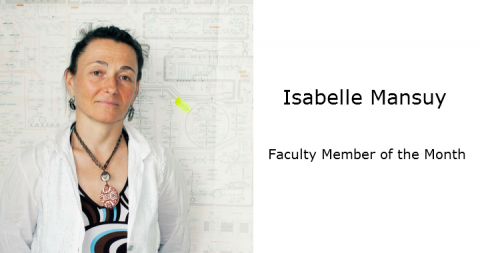With the publication of our first Registered Report, Hollydawn Murray, from F1000Research, explains how we hope this format will enhance credibility.
The dogwhelk Nucella lapillus is a common predatory snail from North Atlantic rocky intertidal habitats that consumes barnacles and mussels. The snail forages when submerged by water and hides inside its shell during low tides. Shell color varies among dogwhelk individuals. Brown and white are common colors. As dogwhelks can easily be collected during low…
“I got rhythm,…”, following this year’s Nobel Prize for Medicine awarded for insights into organisms’ 24 hour rhythm driven by the circadian clock, we look at the recommended research on internal biological clocks and regulation of daily cycles, such as sleep patterns and feeding behaviour. Jeffrey C Hall, Michael Rosbash and Michael W Young are…
In a series of blog posts, we answer your frequently asked questions about F1000Workspace. If you have other questions please do drop us a line on feedback@f1000.com or tweet us at @F1000Workspace – we will respond directly and they could end up appearing on a future blog! F1000Workspace helps you discover and save relevant articles…
Eleanor-Rose Begg, from F1000Research, talks about exercise, both the benefits of keeping fit and the potential risks for extreme sport participants.
Isabelle Mansuy is September’s featured Faculty Member of the Month. She is a professor in neuroepigenetics at the Medical Faculty of the University of Zurich and ETH Zurich (double chair), is a Knight in the National Order of Merit and holds the Legion of Honour in France. Isabelle explains the importance of animal research to improve our understanding of epigenetic inheritance and as a diagnostic for trauma-related psychiatric disorders.
Kevin J. Black is an advisor for the F1000Research Tics collection. This collection provides a single portal to all the best research and clinical information on tics and tic disorders. Kevin gives us some background on Tourette Syndrome and the current research in this area. Georges A. E. B. Gilles de la Tourette was a…
Claire Turner and Kalipso Chalkidou from Global Health and Development Group introduce iDSI, the International Decision Support Initiative, a gateway to share technical knowledge of health economics and stakeholder management to help low and middle income countries transition towards more effective healthcare systems.
On Thursday 14th September, we gathered at the Francis Crick Institute to explore the meaning and impact of ‘Transparency in Peer Review’ – the theme of this year’s Peer Review Week. This was a thought-provoking session that raised many valuable points and identified the challenges that remain to be overcome for a fairer model or peer review. I will focus on one of the main arguments that arose.
While there is, as of yet, no cure for Alzheimer’s disease, there are interventions and drugs that can help slow the progression of the disease or treat the symptoms. While the search for a cure continues so does research into how to identity the disease and slow down the decline of people with the condition. For Alzheimer’s Awareness Day, we share a few of the latest recommended articles of the potential tools and techniques that can help improve our cognitive function and aid with early detection.


















